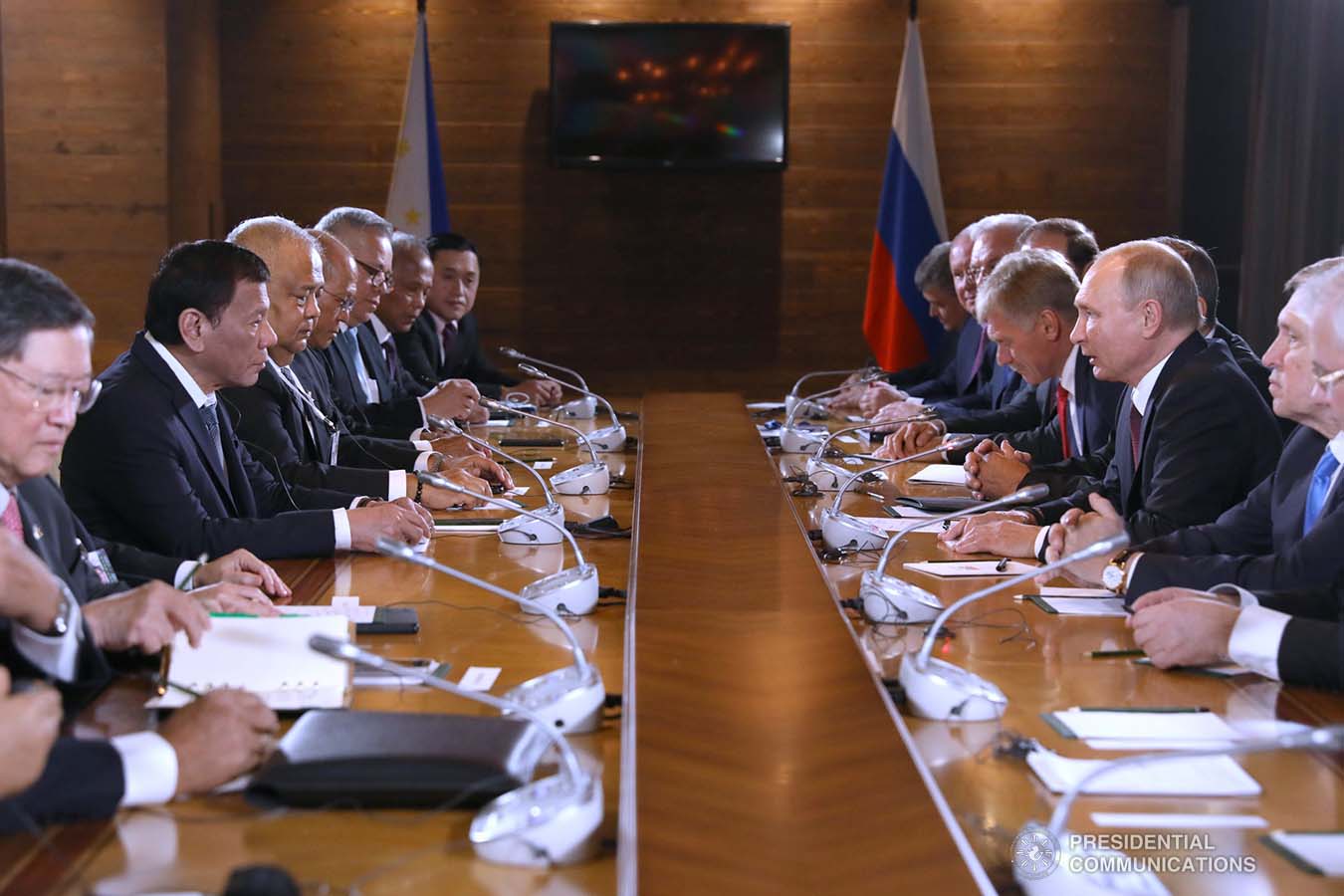Headline
PH-Russia nuclear energy deal ‘uncertain’: Palace

FILE: President Rodrigo Roa Duterte and the members of his delegation hold a bilateral meeting with Russian President Vladimir Putin at the Polyana 1389 Hotel in Sochi on October 3, 2019. KARL NORMAN ALONZO/PRESIDENTIAL PHOTO
MANILA — The nuclear energy agreement between the Philippines and Russia is “uncertain”, Malacañang said on Monday after President Rodrigo Duterte bared that the deal may be unconstitutional.
“They’re discussing whether it’s feasible or not. Kumbaga, nasa ano pa lang ‘yun, pinag-uusapan pa lang (It’s still being talked about),” Presidential Spokesperson Salvador Panelo said in a Palace briefing.
“Wala pang sigurado dun (Nothing is certain yet),” he added.
During Duterte’s five-day official visit to Russia last week, the Philippines and Russia signed a memorandum of intent to explore the possible construction of nuclear power plants in the country.
This was among the 10 business agreements signed between the two countries estimated to be worth USD12.57 million or about PHP650 million.
However, Duterte bared that he would consult his Cabinet first since the deal may be a violation of the Constitution.
“The Constitution would not like it. That is why I have to talk to the Cabinet. I cannot affirm or deny that because that’s part of the proposals,” Duterte said upon arrival from his trip to Russia on Sunday (Oct. 7).
In November 2017, the Philippines and Russia agreed on a nuclear cooperation program under a memorandum of cooperation (MOC) signed during the 12th East Asia Summit.
Energy Secretary Alfonso Cusi said this cooperation is part of the government’s intention to develop a variety of applications for nuclear energy that are within policies, particularly for power generation.
The Bataan Nuclear Power Plant is the country’s first and only nuclear power plant built during the term of former President Ferdinand Marcos. However, it never became operational due to safety concerns and corruption issues.





















